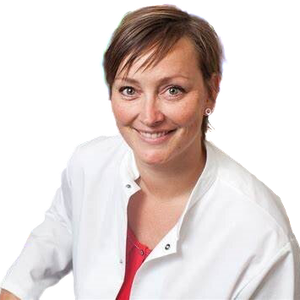
Professor Rikke Louis Meyer
Interdisciplinary Nanoscience Center, Aarhus University, Denmark
KEYNOTE SPEAKER
Theme: BIOGENESIS OF THE BIOFILM MATRIX
Rikke Meyer is a microbiologist and Professor in Bionanoscience at the Interdisciplinary Nanoscience Center (iNANO), Aarhus University, Denmark. Her research combines microbiology and nanotechnology in the pursuit of understanding how bacteria adhere to surfaces and form antibiotic-tolerant biofilms, and how such biofilms can be prevented or treated. She has led a large number of interdisciplinary research project with academic and industrial partners with the aim to develop anti-adhesive materials, discover novel antibiotics, and develop targeted delivery of antibiotics and biofilm-degrading therapeutics. She has attracted >13 mill USD in research grants in her career and has received several awards and personal fellowships in recognition of her research – most recently the Carlsberg Foundation Semper Ardens Accomplish grant in 2023.
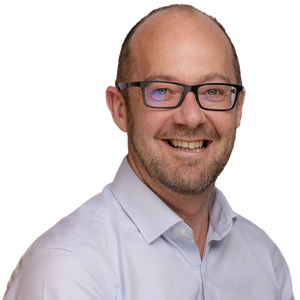
Professor Jeremy Webb
Microbiology, University of Southampton, UK
KEYNOTE SPEAKER
Theme: BIOFILM MATRIX STRUCTURE & FUNCTION
Webb is Professor of Microbiology at the University of Southampton and is Co-Director and Co-Founder of the National Biofilms Innovation Centre in the UK. He works on understanding complex microbial consortia and biofilms, their ecology, evolution and life-cycle dynamics, and how they respond and adapt to their environment. Through NBIC, he is developing national, international and interdisciplinary strategies in research and innovation to address the global challenges relevant to biofilms.
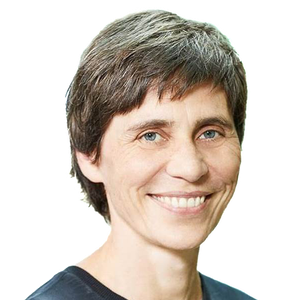
Professor Berenike Maier
Institute for Biological Physics, University of Cologne, Germany
KEYNOTE SPEAKER
Theme: BIOFILM BIOPHYSICS
Berenike Maier is a professor of experimental physics at the Institute for Biological Physics of University of Cologne. Her group focuses on the physics of bacterial systems. One major research topic is bacterial biofilms. How do bacteria control the mechanical and electrical properties of biofilms? How do these physical properties affect tolerance against antibiotics? They employ a combination of nanotechnology, quantitative imaging, and molecular biology to tackle these questions. The second main research interest of the group is horizontal gene transfer. What are costs and benefits of horizontal gene transfer? Under which condition does it speed up adaptive evolution? They develop laboratory evolution approaches using high-throughput methods together with genomics to address these questions.
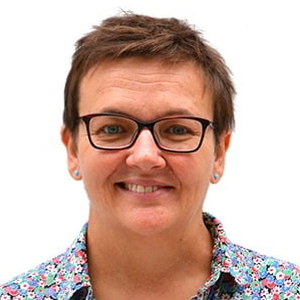
Professor Cynthia Whitchurch
Quadram Institute Bioscience Norwich, UK
KEYNOTE SPEAKER
Theme: BIOGENESIS OF THE BIOFILM MATRIX
Professor Cynthia Whitchurch FAA is a Group Leader in the Quadram Institute Bioscience in Norwich, UK. She obtained her BSc (Hons I) in 1989 and her PhD in 1994 from the University of Queensland. Her research focusses on understanding alternate bacterial lifestyles including how bacteria survive antibiotic treatment through cell wall deficiency, how bacteria build biofilms, and how they co-ordinate collective behaviours. The outstanding quality of her research has been recognised through prestigious fellowships and awards. In 2019 she was elected as a Fellow of the Australian Academy of Science for her discoveries of novel roles for extracellular DNA in biofilms.
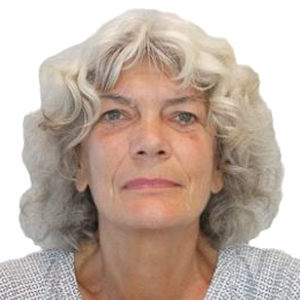
Professor Henny Van Der Mei
University of Groningen, Netherlands
KEYNOTE SPEAKER
Theme: BIOFILM MATRIX CONTROL STRATEGIES
Henny C. van der Mei obtained her PhD in 1989 on physico-chemical surface properties of oral streptococci at the University of Groningen. She became a full professor in 2001 at the department of Biomedical Engineering at the University Medical Center Groningen, The Netherlands. From 2011 to 2015 she was the director of the W.J. Kolff Institute for Biomedical Engineering and Materials Science. Her present research interests include the mechanisms of bacterial adhesion, antibacterial coatings on surfaces, the interplay between bacteria, tissue cells and the immune system, how antibiotics can penetrate a biofilm and how to fight antibiotic resistance of bacteria. She supervised more than 100 PhD students and published over 600 peer reviewed papers.
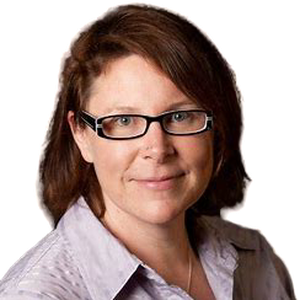
Professor Cait MacPhee
School of Physics and Astronomy, The University of Edinburgh, UK
KEYNOTE SPEAKER
Theme: BIOFILM BIOPHYSICS
Cait MacPhee is Chair of Biological and Soft Matter Physics at the University of Edinburgh. Although now a physicist by trade, she began her academic studies in the life sciences, and has a foot in both camps. She studies soft materials, whether goo, jelly, foams or ice cream. Her research interests lie in the application of physical methods to: the understanding of biomolecules; investigating the formation and structure of microbial communities; the mechanistic basis for protein diseases like Alzheimer’s Disease; and the generation of novel materials based on biological ideas. In addition to fundamental research Cait aims to expand the delivery of research breakthroughs to policy-makers, as well develop new resources for effective communication with the general public. She has a particular interest in enhancing the profile of women in science and industry and is co-Director of the National Biofilms Innovation Centre in the UK.
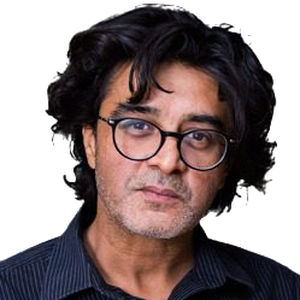
Professor Atul N. Parikh
School of Biomedical Engineering, University of California, Davis, USA
INVITED SPEAKER
Theme: BIOFILM BIOPHYSICS
Atul N. Parikh is professor in the Department of Biomedical Engineering at the University of California, Davis. Since 2013, he is also a Visiting Professor in the school of Materials Science & Engineering, SCELSE (RCE), and IDMxS (RCE) at the Nanyang Technological University in Singapore. He studied Chemical Engineering at the Dept. of Chemical Technology (UDCT) University of Bombay (B. Chem. Eng., 1987) and Materials Science (Emphasis: Polymer Science) at the Pennsylvania State University (Ph.D. 1994). Between 1996 and 2001, as postdoctoral scholar and then technical staff member in the Chemical Science and Bioscience divisions at Los Alamos National Laboratory (LANL), he explored design of biologically inspired materials and biosensors. His present research interests are focused on bio-inspired materials, biosensors, membrane biophysics, and soft matter.
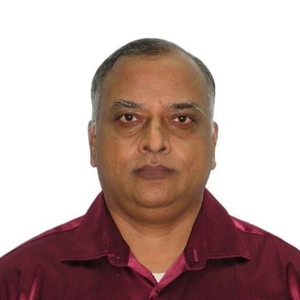
Assoc Professor Lakshminarayanan Rajamani
Co-head, Ocular Infections & Anti-Microbials Research Group, Singapore Eye Research Institute
INVITED SPEAKER
Theme: BIOFILM MATRIX CONTROL STRATEGIES
Associate Professor Lakshminarayanan Rajamani is the Co-Head of the Ocular Infections & Anti-Microbials Research Group at the Singapore Eye Research Institute (SERI). He holds joint appointments at the Department of Pharmacy and Pharmaceutical Sciences at the National University of Singapore (NUS) as well as at the Academic Clinical Program in Ophthalmology & Visual Science program at the Duke – NUS. He received his PhD degree from the Department of Chemistry at the National University of Singapore in 2003. He received numerous awards such the prestigious Singapore Millennium Foundation – Post Doctoral Fellowship, ASEM-DUO Denmark Fellowship, Outstanding Postdoctoral Fellow and Outstanding Scientist Award. At SERI, he has been involved in translational research for treating bacterial and fungal infections of the eye. His major research interests include antimicrobial nanofibres, peptides & polymers, biophysics, nature-inspired polyphenol nanocoating, electrospinning of biopolymers for advanced wound dressings and personal protective equipment, mechanism of protein aggregation and functional amyloids. He has >150 publications that have an h-index of 54 and 8500 citations.

Assoc Professor Cao Bin
School of Civil and Environmental Engineering (CEE), NTU
INVITED SPEAKER
Theme: BIOGENESIS OF THE BIOFILM MATRIX
Dr. Cao Bin is an Associate Professor in the School of Civil and Environmental Engineering and a Principal Investigator in the Singapore Centre for Environmental Life Sciences Engineering (SCELSE), Nanyang Technological University, Singapore. His research efforts are focused on understanding biofilm-mediated environmental processes and harnessing the power of microbial biofilms to address environmental issues (www.bcaolab.org). Specifically, his research team uses environmental engineering, (bio)chemical engineering, microbiology, and molecular/synthetic biology tools and develop new tools to (i) understand biofilm-mediated environmental processes and biofilm-contaminant interactions, (ii) engineer microbial biofilms with defined structural and functional characteristics, and (iii) develop biofilm-enabled approaches for environmental biotechnological applications. Ongoing projects in his group include biofilms as a source of extracellular DNA in natural and engineering environments; biofilm-plastic interaction in coastal and marine environments; and engineering controllable biofilms for biotechnological applications.
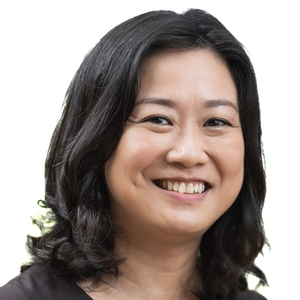
Assoc Professor Lim Sierin
School of Chemistry, Chemical Engineering and Biotechnology, Nanyang Technological University (NTU)
INVITED SPEAKER
Theme: BIOFILM MATRIX STRUCTURE AND FUNCTION
Sierin Lim is an Associate Professor of Bioengineering/Biotechnology at the School of Chemistry, Chemical Engineering and Biotechnology at Nanyang Technological University, Singapore (NTU). Her research group focuses on the design and engineering of hybrid nano/microscale biodevices using proteins for applications in health and the environment. Specifically, her Bioengineered and Applied Nanomaterials Lab (BeANs Lab) uses protein cages as the building blocks and a platform for formulation and delivery of active molecules to the skin. Her lab also explores the utility of protein cages to enhance contrast in imaging atherosclerotic plaques. In her Molecular & Cellular Bioengineering Lab (MCBe Lab), she leads a program in engineering enzymes and microbes to up-cycle plastic wastes to oil, cellulose, and cannabinoids using cyanobacteria, cellulose bacteria, and yeast.
She is currently serving as the Associate Dean of Global Partnerships at the NTU Graduate College. She earned her B.S. in Chemical Engineering and Ph.D. in Biomedical Engineering from University of California Los Angeles (UCLA).
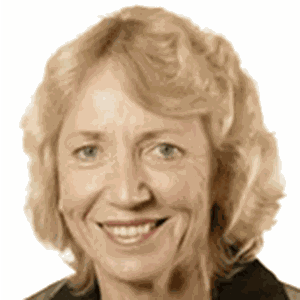
Professor Patricia Conway
PC Biome Pte Ltd.
INVITED INDUSTRY SPEAKER
Theme: BIOFILM MATRIX: TRANSLATIONAL IMPACT
Dr Patricia Conway, BSc & MSc (Uni of Qld, Australia), PhD (UNSW Australia), is Visiting Prof at SCELSE at Nanyang Technological University, Singapore, Adjunct Prof at UNSW Australia and Chief Scientist/CEO and Founder of PC Biome Pte Ltd, Singapore. She is also Founder/Director and Research Director of two Biotech companies in Australia. She has successfully combined basic research and translational applications for over 30 years by being affiliated with university for supervision of doctoral students (>20 to date) and the basic research while being industry employed, or by working closely with industry while being university employed. She has over 100 publications in international peer reviewed journal. Several globally marketed products for gut microbiome modulation have been commercialised from her work, and are supported by the IP platform including over 20 primary patents.
Patricia’s research interests are gastrointestinal microbiology, probiotics and prebiotics, with particular emphasis on the importance of the gut microbiome for health and well-being. She has focused on mechanisms of bacterial adhesion, pathogen inhibition and immune modulation in animals and humans. In particular, health conditions linked to inflammation, infection and metabolic disorders and developing intervention strategies for improving health, especially in infants and the elderly.
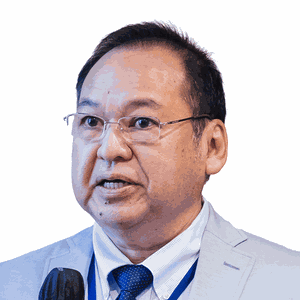
Dr Gregory Poi
Biofilm Engineering Technology Consultancy Services Pte Ltd, (BeTECS)
INVITED INDUSTRY SPEAKER
Theme: BIOFILM MATRIX: TRANSLATIONAL IMPACT
Dr Greg is the Director at Biofilm Engineering Technology Consultancy Services Private Ltd (BETeCS), with a focus in sustainable bioremediation of sites contaminated with petroleum hydrocarbon. He has completed several large-scale industry projects rehabilitating petroleum-contaminated soil and groundwater, as well as biotreatment of industrial wastewater. He is currently exploring the mitigation of environmental pollution using green biotechnology. He is also the author of several papers and holds two patents in bioremediation technologies.
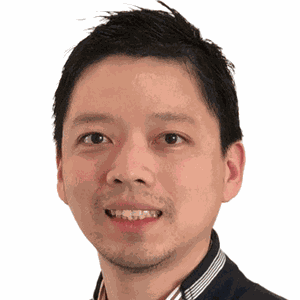
Dr Joseph Lo Zhiwen
MBBS, B Med Sci, MMed (Surgery), FRCSEd, FAMS, FACS, FEBVS, PhD (candidate)Woodlands Health
INVITED INDUSTRY SPEAKER
Theme: BIOFILM MATRIX: TRANSLATIONAL IMPACT
Joseph is a Senior Consultant and Head of Vascular Surgery Service at Woodlands Health, specializing in diabetic limb salvage and wound care. He is a Clinician-Scientist with the National Healthcare Group, securing over S$5 million in research grants and co-authoring 65 publications. Joseph received several awards including the Society of Vascular Surgery International Scholars Program in 2020, NMRC Research Training Fellowship in 2021, and the National Healthcare Innovation and Productivity Medal (Care Redesign) in 2022. He contributes to the medical community as a board member of the Chapter of General Surgeons, College of Surgeons (Singapore), and currently serves as the Honorary Secretary of the Society for Vascular and Endovascular Surgeons of Singapore.
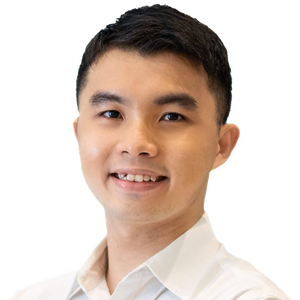
Mr Dillon Chew
Procter & Gamble (P&G)
INVITED INDUSTRY SPEAKER
Theme: BIOFILM MATRIX: TRANSLATIONAL IMPACT
Dillon is an R&D Scientist at Procter & Gamble’s Singapore Innovation Center where he works at the intersection of microbiology, bioinformatics, and data science to drive innovation across consumer product categories. In his current role within the Discovery and Innovation Platforms team, he focuses on the development and application of bioscience capabilities to advance microbial control strategies. His work spans various areas, ranging from assay development and modelling to evaluate anti-biofilm ingredients, to multiomic studies for skin, fabric, and oral care products. Dillon’s background mixes synthetic biology and industrial biotechnology. He holds an MPhil in Biotechnology from the University of Cambridge, and dual bachelor’s degrees in Chemical Engineering and Life Sciences from the National University of Singapore.